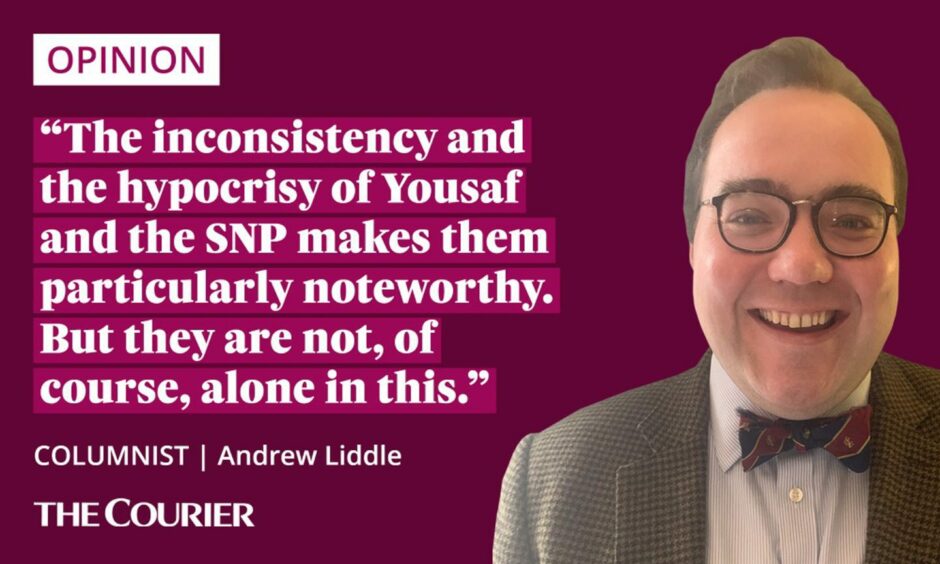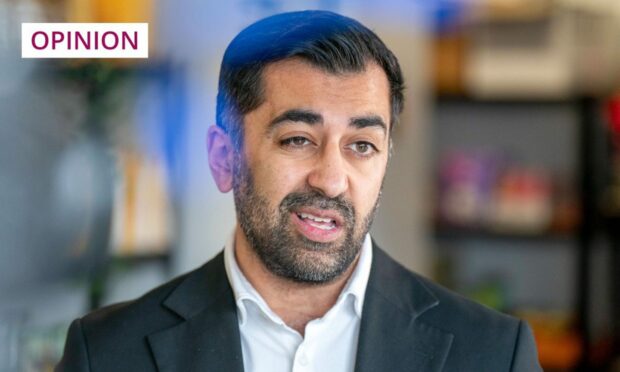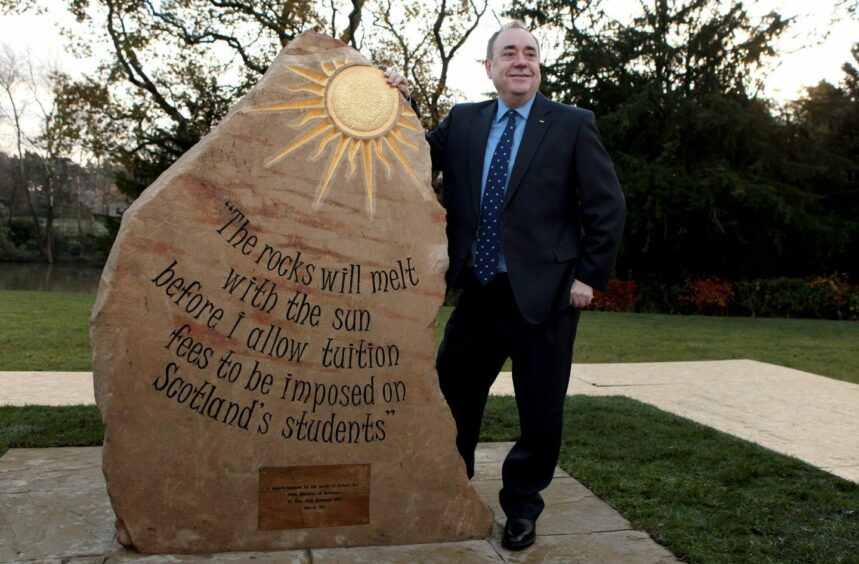The problem is not that people have had enough of experts, but that politicians do not listen to them.
The SNP might like to think of itself as being immune from this particular affliction. But unfortunately for young people in Scotland, it is clearly now universal.
The Principal of Edinburgh University’s latest intervention is a case in point.
In Professor Sir Peter Mathieson, we have a man who has been a university professor since 1995 and in a senior administrative role in higher education since at least 2007.
He has served at institutions across England. And before he took on his role in Edinburgh, was Vice Chancellor of the University of Hong Kong.
In total, he has more than 30 years’ experience in the higher education sector and is currently responsible for running one of the biggest and best universities not just in Scotland, or the UK, but across the world.

In short, if you wanted to find an experienced expert to reflect on the opportunities and challenges of the Scottish university sector, you would be hard pressed to do better than Mathieson.
That is why, when he put forward the very modest suggestion that ending universal free university tuition was worthy of “calm consideration”, many people sat up and listened.
Mathieson not along in raising alarm over free university tuition in Scotland
He argued that the policy was causing a brain drain from Scotland, with “talent and money” flowing away as wealthy families can afford to pay for their children to go to university elsewhere in the UK.
Indeed, Mathieson’s intervention has added to a growing chorus of authoritative calls for a rethink on free university tuition.
The respected think tank Reform Scotland also recently suggested the policy should be scrapped as it creates an artificial cap on the number of Scottish students able to attend university.
The ambitions and dreams of young people in Scotland, the think tank warned, were being “stifled” as a result of the policy.
And yet, without even a pause for thought, Humza Yousaf dismissed Mathieson’s reasoned suggestion out of hand, instead insisting he was “proud” of free university tuition and was “absolutely committed” to maintaining it as is.
For Yousaf and the SNP, it seems the rocks will melt with the sun before they listen to an expert opinion that challenges their sacrosanct policy.
All experts are not equal in Yousaf’s eyes
This is not only troubling, but deeply hypocritical, particularly from a party that is quick to ridicule those who choose to display their absurdities on the side of a bus, rather than chiselled into a lump of stone.
Yousaf himself, for instance, will readily rely on expert evidence when he agrees with that opinion, and it suits his party-political point of view.
Last year, he was swift in ridiculing future Prime Minister Rishi Sunak when the latter claimed the UK Government had allowed scientists too much sway over policy during the Covid-19 pandemic.
“Ignoring experts”, the future first minister thundered, was “Trumpisim” and would have damaged outcomes for people in Scotland.
Yousaf even added that he was “grateful” to have had such wise counsel informing his policy making.
The question, of course, is if the views of experts were so important in that instance, why are they not equally important when it comes to Mathieson’s intervention?
Free university tuition should be a concern for all parties in Scotland
What makes the situation over free university tuition all the more troubling is that Yousaf has, since becoming first minister, shown himself willing to think differently on universal benefits.
He recently shocked many in the country – not to say his own party – when he withdrew his support for a pledge to give free school meals to every secondary pupil.
The policy was, he argued, too expensive. And it was better to prioritise limited resources towards those most in need.
You cannot tackle poverty and disadvantage – Yousaf seemed to have acknowledged – by giving subsidies to the middle class.
Again, this view makes perfect sense. It is just a shame that Yousaf chooses to apply it selectively.
🎓 We’ve scrapped tuition fees in Scotland, and we will protect free tuition.
📣 @HumzaYousaf: "I believe that education should be based on the ability to learn, not the ability to pay.
There will be no movement at all from the Scottish Government in relation to free tuition.” pic.twitter.com/zYaiy3khMA
— The SNP (@theSNP) May 10, 2023
The inconsistency and the hypocrisy of Yousaf and the SNP makes them particularly noteworthy. But they are not, of course, alone in this.
Almost every party and every leader will cite the experts when it suits them and ignore them when it does not.
They will also quote selectively, inflate artificially, and gerrymander statistically in order to make a point or policy seem more attractive.
No politician, in any of Scotland’s main parties, is likely to heed Mathieson’s call and even calmly consider the future of free university tuition, despite his personal experience and institutional knowledge.
And that, ultimately, is the problem.
It is not, as Michael Gove once suggested, that we have had enough of experts. It is that our politicians do not listen to them.













Conversation